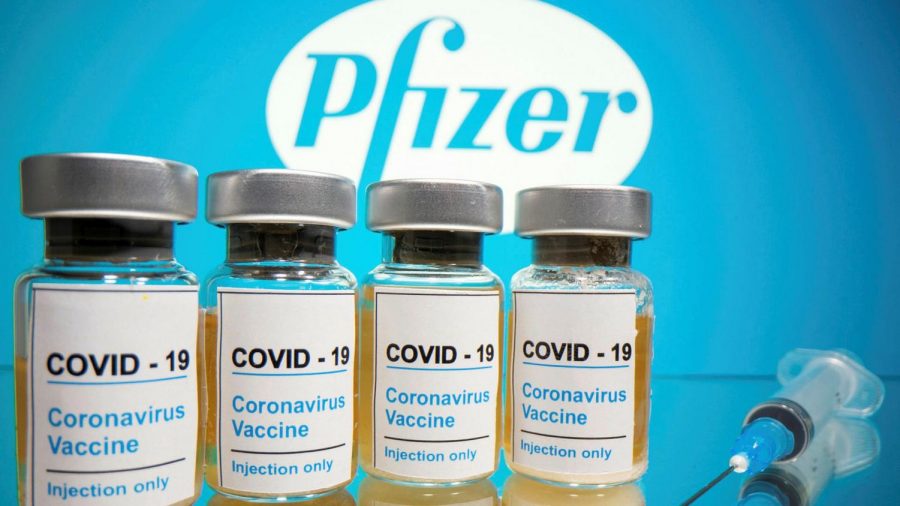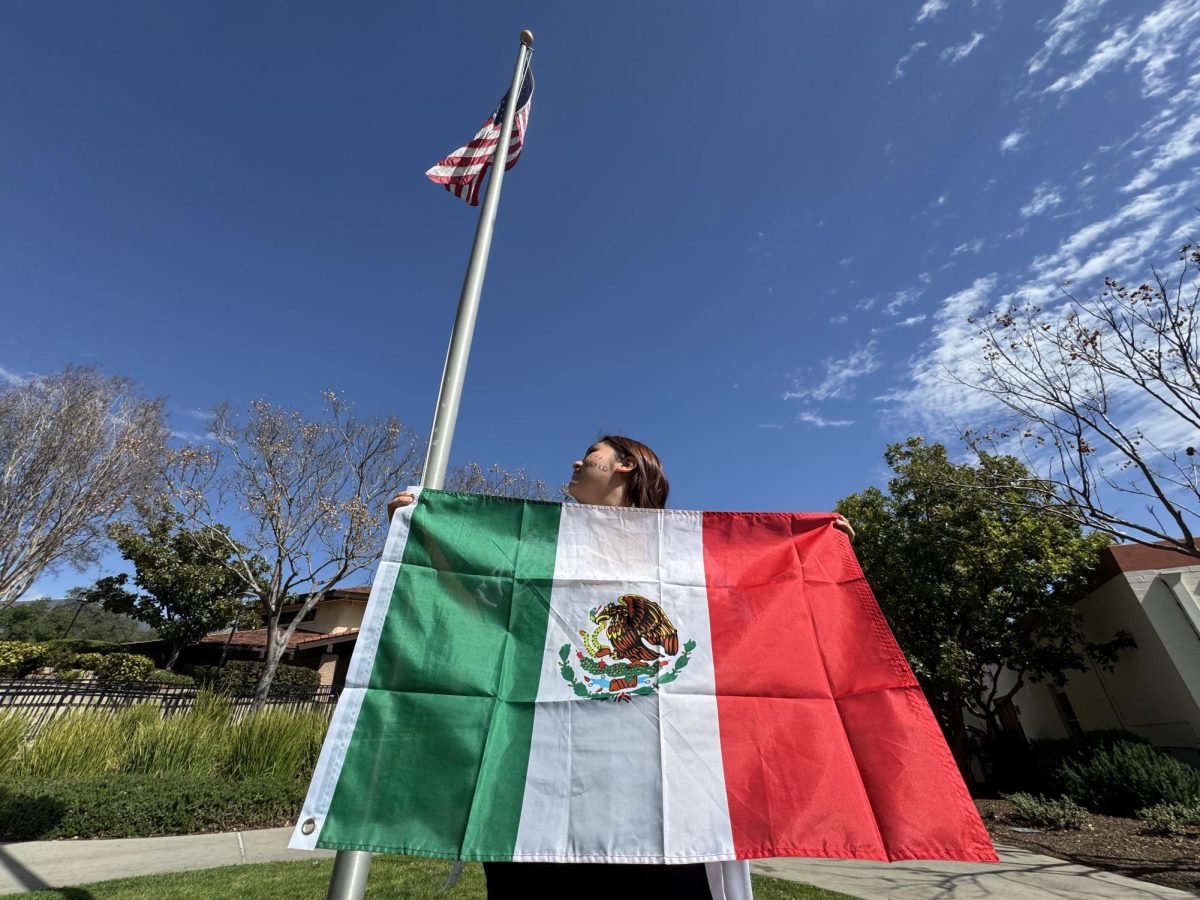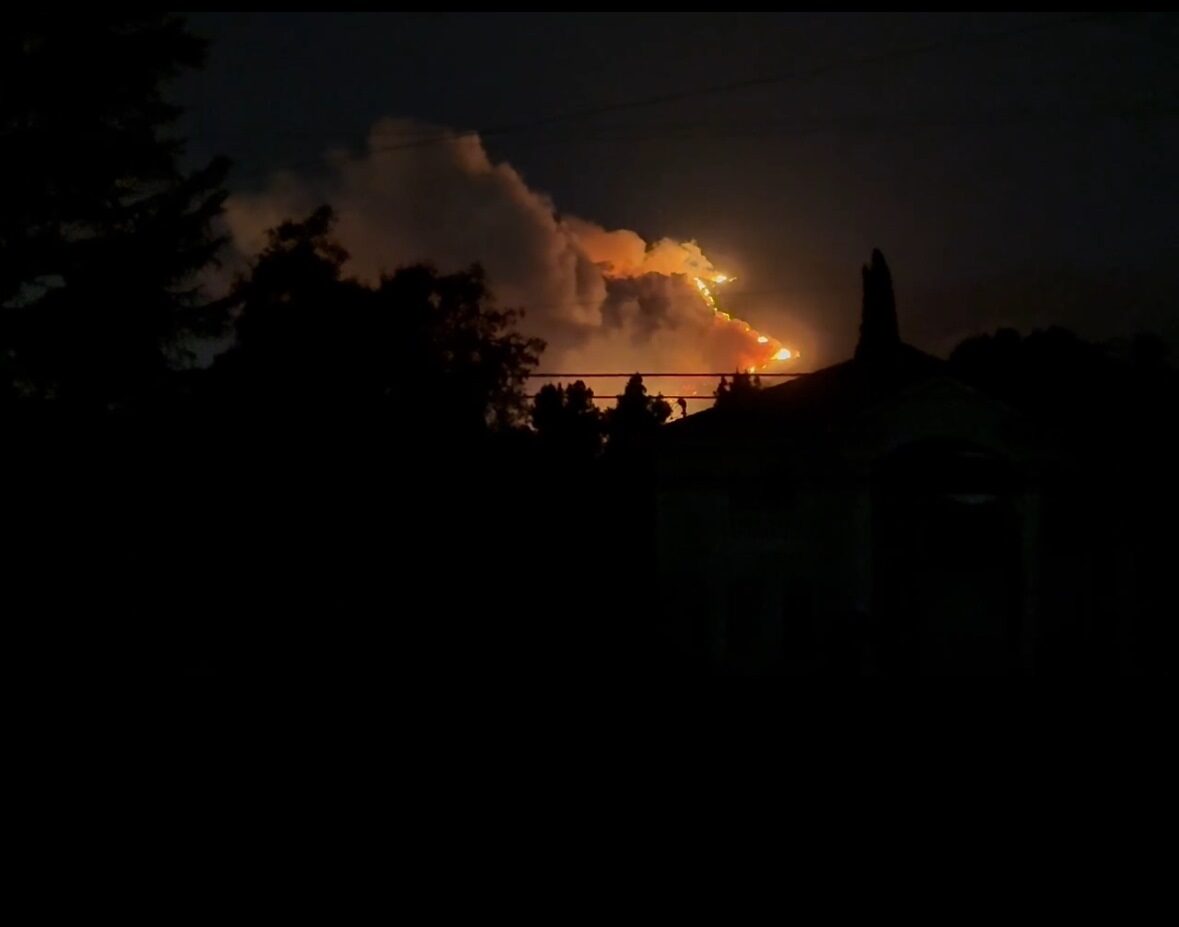It has been nearly eight months since the Covid-19 Outbreak, local lockdowns, and strict safety protocols took the world by storm, with no end in sight. However, hope is on the horizon, thanks to Pfizer’s and Moderna’s COVID-19 vaccines.
Pfizer has begun shipping COVID-19 vaccines on December 12th, to combat the surging pandemic. Fed Ex has partnered with Pfizer to send out more than 500,000 in each delivery truck to over 143 hospitals and health departments throughout the U.S. Pfizer’s coronavirus vaccine, according to STAT News, a health-oriented news website that publishes articles on medical and scientific discoveries, can supposedly drop symptomatic COVID-19 cases by up to 90%, as multiple tests seem to suggest. With late-stage data, researchers can understand the long-term effects of the vaccine on an infected patient. By plummeting the amount of symptomatic COVID-19 cases by such a large margin, Pfizer’s vaccine could be especially useful for treating potentially deadly symptoms caused by the virus. However, due to the vaccine only being studied for a around 8 months, it’s impossible to say how long it will protect against infection from the virus.
However, Pfizer declare that the vaccine is 95% effective. It is important for the company to increase the effectiveness of the vaccine as much as possible for it to be viable.
Yet again, there are still many unknown factors that must be reconciled before the vaccine can be used. According to STAT News, “there is no information yet on whether the vaccine prevents severe cases, the type that can cause hospitalization and death, nor is there any information yet on whether it prevents people from carrying the virus that causes COVID-19, SARS-CoV-2, without symptoms.”
Moderna’s vaccine is “strongly effective,” according to the company, an attribute that Pfizer’s vaccine did not share. According to STAT News,“ the Moderna vaccine reduced the risk of COVID-19 infection by 94.5%. There were 95 cases of infection among patients in the company’s 30,000-patient study. Only five of them occurred in patients who developed COVID-19 after receiving Moderna’s vaccine.”
Likewise, the vaccine has no significant safety concerns, according to the company. Side-effects including fatigue, headaches, muscle pains, and achiness occurred in only 10% or less patients, symptoms that were “generally short-lived.”
Even though Moderna’s and Pfizer’s vaccines are promising, there is some unfortunate news that limits hope for swift release of a vaccine. Experts warn that it is often the case that a vaccine performs worse in the real world than it does in clinical trials (STAT News). This is likely because a small sample of people in an experiment cannot accurately represent every existing person’s physiology and health.
For a COVID-19 vaccine to be approved and deemed safe and effective, thousands of experiments must be conducted, which in turn will require thousands of hours, meaning that results are not always immediate and clear. Moderna’s and Pfizer’s vaccines shed hope for the distant future, where a COVID-19 vaccine will end the persistent lockdowns and social-distancing guidelines plaguing social interactions, yet patience is key so that a safe and effective vaccine can be produced.
The beginning of the COVID-19 pandemic devastated the economy, sending investors into a frenzy. Multiple countries have tried to relieve some of the pressure put on by the market crash by rolling out stimulus packages to put into their own economies. However, the United States has not gotten the chance to, as the U.S. Congress is unable to come together to formulate another stimulus package.
Since then, the market had been at a standstill, going up and down until Nov 10th, when Pfizer’s COVID Vaccine was found to be 60-70% effective.
The S&P 500 stock index went up 7.3% when this vaccine was announced. This was its best weekly performance since April of 2020. The DJI (Dow Jones Industrial Average) was up around 3%, followed by American Express, which was up by a staggering 21%
Not only has the U.S.’s stock market seen a significant increase, but foreign markets have as well. For example, the CSI 300, a Chinese Market, had gone up around 2%. Britian’s FTSE-100 had gone up around 5%, while France’s CAC-40 have gone up around 7.6%.
Many have warned against “hyping up” the vaccine due to the lack of long-term data, but if these trends were to continue, the stock market will hopefully regain momentum, and get back to normal.
So, what does this mean for Webbies? There has been talk amongst the Webb community of going back to school over the course of these last few months. Some are worried about coming back; they fear that the experience will not be the same due to the guidelines being so strict. However, many are getting tired of online schooling, as it lacks the social aspect that students valued. Many do not believe that coming to school is possible.
“Although I would like to return back to school, I don’t think that will be possible anytime soon,” Kaylnn Chang (‘23) said.
“I worry of the increasing number of cases that have been pouring in. I’m also concerned on how the restrictions might hinder the ability to fully return back to normal,” Taya Sibichenkova (‘24) said.
“If it’s scientifically proven by credible sources that it’s effective then I don’t see why it shouldn’t be used by everyone,” Emily Huang (‘23) said.
The risk involved with the creation of a new vaccine and returning to school make this topic difficult to discuss. But the first step is always the most important, so students at Webb and across the globe should be hopeful for an effective, safe, and widely available vaccine that would allow us all to return to campus. Taking a single side and sticking to it is not healthy, so it is important to stay up to date and to identify reliable, trustworthy sources from which you can create an informed opinion. There is no definite timeline for when Webb will reopen, yet there is a promising path for a COVID-19 vaccine in 2021.

















